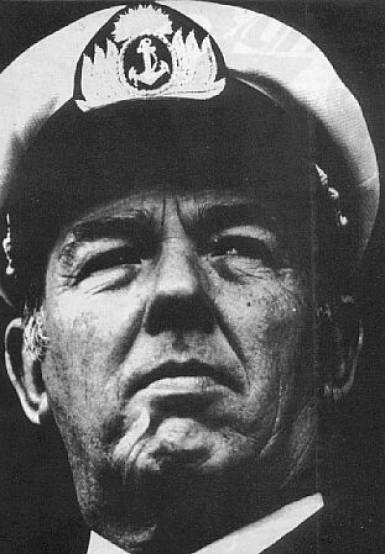On Thursday, May 4, 1978, less than a month after the start of the 1978 World Cup, the Board of Directors of River Plate, presided by Rafael Aragón Cabrera, voted unanimously the dictators Jorge Rafael Videla, Emilio Massera and Orlando Ramón Agosti became honorary members. On June 25, the three men were in the Monumental boxes celebrating the World Cup won by the national team.
On October 13 of that year, a special session of partners endorsed this recognition. This ratified the relationship between River and the military dictatorship.
The members of the Military Junta retained the distinction of River until the 21st anniversary of the coup d'état, when the club of Núñez decided to cancel the recognition. It had lasted 19 years: Agosti died in October 1996 as an honorary member.
The measure had been promoted by the then socialist congressman and River Plate life member Alfredo Bravo, a victim of State terrorism.
Videla, Massera and Agosti were not the only ones who were distinguished by the leaders of Argentine football in those years of terror.
Vice Admiral Carlos Alberto Lacoste, the face of the 78 World Cup Autarchic Organizational Body (EAM) and River Plate fan, continued until his death related with River. Back then, River was his backyard. For example, in January 1979, when the then goalkeeper Ubaldo Fillol was reluctant to sign the renewal of his contract with River, he was summoned by Lacoste to his office. There they pointed rifles at him to intimidate him.

That episode evidenced the relation of convenience of the Argentine football clubs with the last civic-military dictatorship. Relationship that continued after the dictatorship: Lacoste came to occupy the position of vice president of FIFA, entity that invited him to watch the France 98 World Cup.
Brigadier Osvaldo Cacciatore, Buenos Aires mayor between 1976 and 1982, could maintain his position in River Plate too. General Antonio Merlo, former governor of Tucumán, also retained his honorary membership in the club of Núñez.
The dictator Roberto Viola, de facto president of the regime in 1981, was also named honorary member that same year. Viola, convicted of crimes committed during the dictatorship in the Trial of the Juntas and pardoned by President Carlos Menem in 1990, received the card of life member of Colón F.C. in June 1981. Lacoste and Rear Admiral Rodolfo Luchetta, former governor of the province of Santa Fe, also received this distinction. Colón F.C., at that time, where at the bottom zone of the table, honored the repressors with the intention of eliminating the relegations, says journalist Nicolás Lovaisa. Finally, Colón was relegated anyway. Viola died in 1994. Only in 2011 did the Santa Fe team deprive him of his status of life member.
In Argentinos Juniors, the former head of the First Army Corps during the last dictatorship Carlos Suárez Mason was a member and the head of the Heritage Commission. And in 1980 he was declared honorary member for using money from YPF and the Austral airline to retain Diego Maradona. Argentinos juniors showed him the red card in 1999.